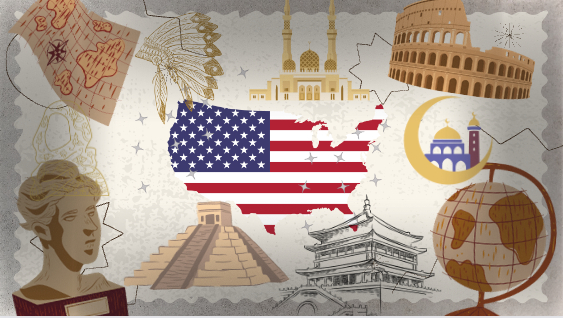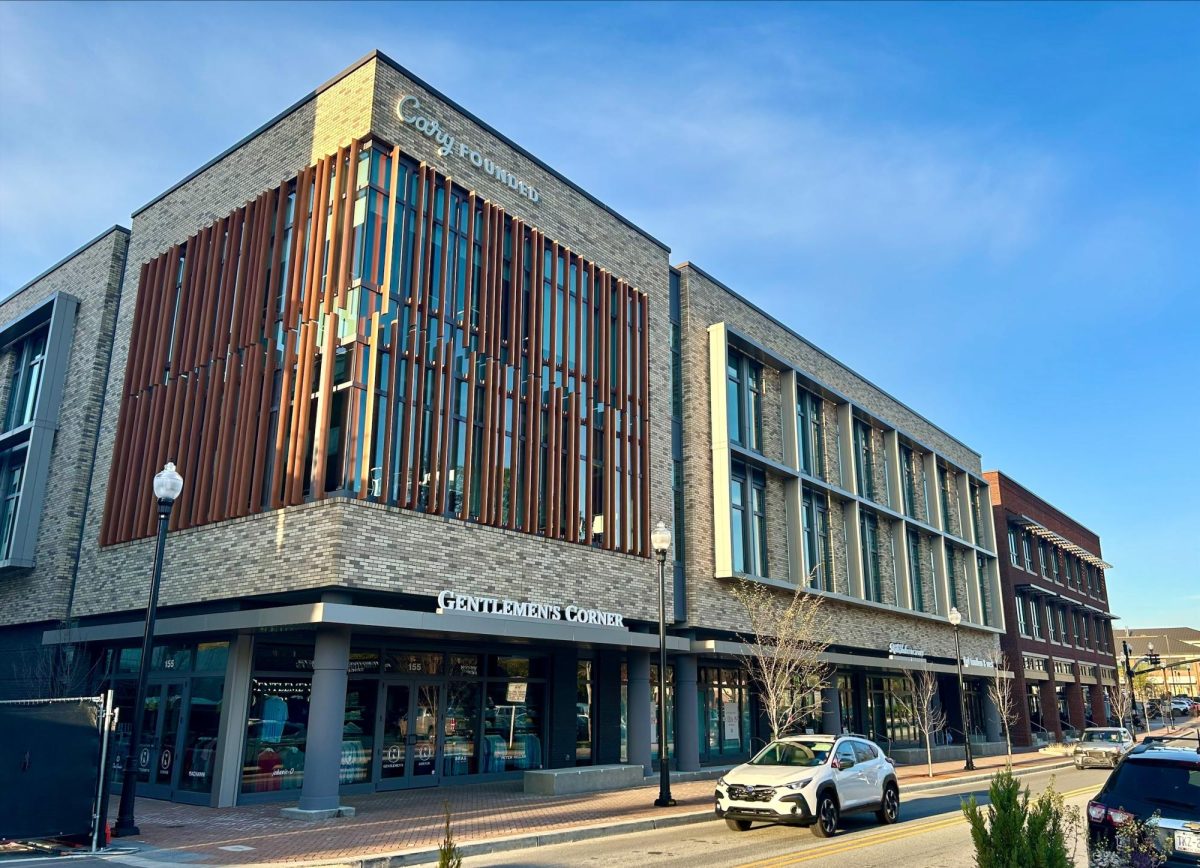
Surrounded by all my friends, we settled down around a lunch table, all eager to get a break from the school day. Slowly but surely, the familiar sound of unzipping lunch boxes rings around the table as we all indulge in what we have packed to fill ourselves for the day. Looking around, I see my friends all have similar foods; PB & J sandwiches, fruits, yogurt, very American staple lunches. When I reveal what I have packed for the day, one of my favorite Middle Eastern dishes- Zayt uh Za’atar– I am overcome with the familiar feeling of hunger. Ready to indulge in my delightful refreshment, I notice my friends’ focus turns to my dish. Then, with a look of disgust, turns back to me and says, “Are you gonna eat THAT?”
In ethnic people’s lives, instances like these have become an unfortunate reality. Dissimilar foods, clothing, language and many more aspects that make every culture unique, do not conform to the American lifestyle. Being constantly reminded that you do not fit in and having the people around you point out every single thing that makes you different from them is not the best feeling in the world. This can have a negative effect on anybody, but especially children who are susceptible to harsh criticism as their mind develops. The feeling of seclusion due to the differences they have with their classmates can be detrimental to their self and cultural identity. People that were born in a country in which their parents were not raised are forced to find a balance between their two different lifestyles. This can be difficult when you are not living in your native country, but still, celebrate and reinforce the same views and ways of life as if you were living there. Like a fish out of water, growing up in an environment where nothing feels like home.
Raised to be a devoted student, determined to do only the best in terms of education, and all facets of life nonetheless, one can not help but feel overwhelmed with the difficulty in balancing two contrasting lives. It is hard to accept the fact that you do not truly belong in an environment that you know the ins and outs of. America is a country where everyone and their unique beliefs are accepted, but the contrasting culture can leave people feeling isolated. Where, on the contrary, that is what makes culture such a beautiful thing, the similarities between people, celebrating the roots of your heritage and feeling like you belong. Being separated from everything that makes you feel unique and at home, it is only a matter of time before one slowly starts to drift away from their culture.
Compared to relatives that live back home, living in America is a desirable life. With a high education rate, great healthcare and safe environment, every family wants to live in America. But the incorrect perception of this “sweet life” causes families back home to neglect how hard it is to live as a migrated family in America. Whether it be rather rude comments when out in public or ignorant classmates, it is not as sweet as it may seem. Not trying to be mistaken as ignorant, there is obviously a necessary appreciation for such a life, for there are people that are not as fortunate. I am simply stating the inaccurate depictions of life away from family, which cannot be recognized in the unfamiliarity of the two different lives.
The lack of visitation limits families to phone and video calls as the only form of communication, leaving an immense gap in family connections. Missing out on family traditions, we still receive videos and photos of what is going on in the fam, weddings, births and other familial events. But watching those videos and seeing what is missing here in America, one gets filled with a feeling similar to envy. Nothing can compare to the feeling one gets when they are surrounded with familiar faces, celebrating in your hometown, it is quite desirable.
The added pressure one feels when deep down they do not feel as close to their heritage as they probably should. In most cases, immigrant parents do their best to uphold the same traditions they were raised around and pass them on to their children. But living somewhere other than your motherland, is not as easy as it sounds. The life one lives at home versus the contrasting life one lives in the real world is hard to balance, almost like having to flip a switch. Being born in a different environment than your parents leaves it up to the kids to navigate their way through understanding all the different aspects of life, all the while trying their best to keep the ties to their heritage. The constant shifts in personality can leave one struggling with their self-identity and constantly asking themselves: “Who am I?”
Nevertheless, no matter how small the ties are with heritage, finding one’s cultural identity is never an easy task. We have to find a balance between meeting the expectations of the ones that want only the best for us, along with accepting what it is that we want from ourselves. It is not the refusal to accept one’s culture that keeps the new generation from unashamedly embracing their culture, quite the opposite actually. There is nothing we want more than to reflect our heritage properly.
We leave the house, on our way to school, work, with our culture seeping into our veins, a force driving us to communicate what makes us unique. Solemnly expressing ourselves through our manners that we were raised with, the clothing we choose to wear, the food we choose to pack.






